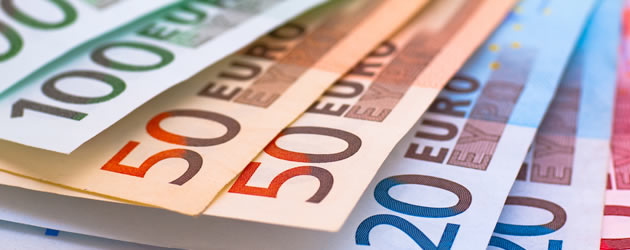Euro New Zealand Dollar (EUR/NZD) Exchange Rate Rises on Better-than-Expected Flash German Inflation
The Euro New Zealand Dollar (EUR/NZD) exchange rate rose around 0.7% this afternoon following reports of heightened geopolitical risks, and better-than-expected data from the Eurozone.
The pairing is currently trading at an inter-bank rate of NZ$1.6711.
February’s flash German Harmonized Index of Consumer Price Index held steady this afternoon, buoying the single currency as it remained at 1.7% annual growth.
The Euro likely benefitted from the year-on-year inflation rising to a higher-than-forecast 1.6% in the Eurozone’s largest economy.
However, for a third month in a row annual inflation failed to meet the European Central Bank’s (ECB) 2% target.
EUR/NZD Rises as Sanctions Trip up Trump-Kim Summit
Heightened geopolitical risks likely weighed on the risk-sensitive New Zealand Dollar this morning following the breakdown of the Trump-Kim summit in Hanoi, Vietnam.
It had been expected that the pair would be announcing progress on the issue of denuclearisation, however this did not happen, and following the meeting President Trump commented:
‘Sometimes you have to walk and this was one of those times.’
US President Donald Trump and his North Korean counterpart Kim Jong-un walked away from the summit without an agreement set in place as the US could not meet Kim’s demands on sanctions.
The summit was cut short as the original schedule had planned for a ‘Joint Agreement Signing Ceremony’ as well as a working lunch between the two leaders.
New Zealand Dollar (NZD) Slides on Weak Business Confidence and Deteriorating Chinese Manufacturing Sector
New Zealand’s ANZ Activity Outlook for February slipped from 13.6% to 10.5%, which likely weighed on the New Zealand Dollar as it slipped against the Euro.
Also dampening sentiment in NZD this morning was the release of ANZ’s Business Confidence Survey, which contracted further to -30.9 from -24.1.
The ‘Kiwi’ suffered a further blow in the form of data from China that showed activity across the Chinese manufacturing sector deteriorated at the fastest pace in nearly three years.
China’s NBS Manufacturing PMI contracted further in February from 49.5 to 49.2.
Lighthizer’s Cautious Remarks Dampen New Zealand Dollar (NZD) Sentiment
The ‘Kiwi’ fell yesterday following cautious remarks from US Trade Representative Robert Lighthizer regarding the progress of US-China negotiations.
Lighthizer cast doubt on the previous view that a major breakthrough was close by saying:
‘Much still needs to be done, both before an agreement is reached, and more importantly, after it is reached.’
This contrasts with a tweet from earlier this week in which President Trump signaled that a US-China trade deal was in ‘advanced stages’.
Euro New Zealand Dollar Exchange Rate Outlook: Will EUR/NZD Slip Following Rise in NZ Building Permits?
This evening, January’s seasonally adjusted New Zealand building permits are scheduled for release.
If building permits increase it could see the New Zealand Dollar see an upswing of support.
China’s Caixin Manufacturing PMI is likely to have an effect on the risk-sensitive NZD.
February’s figure is forecast to increase from 48.3 to 48.5, however this would mean the manufacturing sector continues to contract which may cause the ‘Kiwi’ to slide.
The Euro could see an upswing of support tomorrow following the release of the German unemployment figure, which is forecast to hold steady at 5%.
The single currency could be offered further support by the flash inflation figure for the Eurozone.
February’s annual inflation is forecast to rise by 1.5% which could cause the Euro New Zealand (EUR/NZD) exchange rate to rise.



